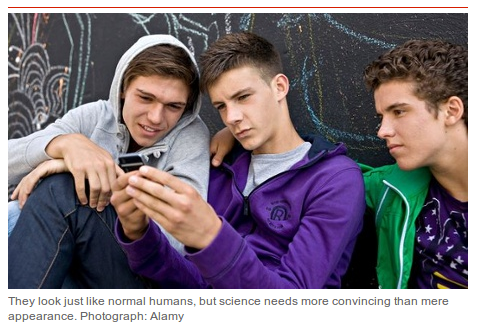
I’ve heard people reacting in two ways to the hyped announcement about Eugene passing the Turing Test. Some claim the test should be harder: longer term and more complex, others that it doesn’t show machines doing thinking. I disagree with both complaints. I think the test is a brilliant one, and very insightful and informative about what it means to be a language machine.
Turing (1950) wrote:
“I believe that in about fifty years’ time it will be possible, to programme computers… [to] play the imitation game so well that an average interrogator will not have more than 70 per cent chance of making the right identification after five minutes of questioning”.
So however hyped, the basic facts of the story are more or less correct, and I find it quite amazing (given that the Eugene chat bot was first written in 2001) that Turing got the timing spot on. However, I do agree that the news story and most interpretations of the meaning of the Turing Test are nonsensical from a scientific standpoint.
It seems likely to me that since 2001 many 13 year olds along with a great many other humans would fail the test as described, and equally likely that many more advanced chatbots would be able to pass it quite easily. This wasn’t the case in 1950 when the social meaning of computing would have been unrecognisable to contemporary judges, and vice versa.
Given that Turing’s computing challenge was passed, quite trivially, some time ago, the research challenge posed by the test as a socio-historical milestone, and the challenge for cognitive science in general since then is figuring out how, when and in what ways humanness is an ascribable quality.
There is a nice discussion of exactly this problem in QM’s very own CS4FUN – although I’m not sure who (or what) wrote it.
Refs:
- Turing, A.M. (1950). Computing machinery and * intelligence. Mind, 59, 433-460.